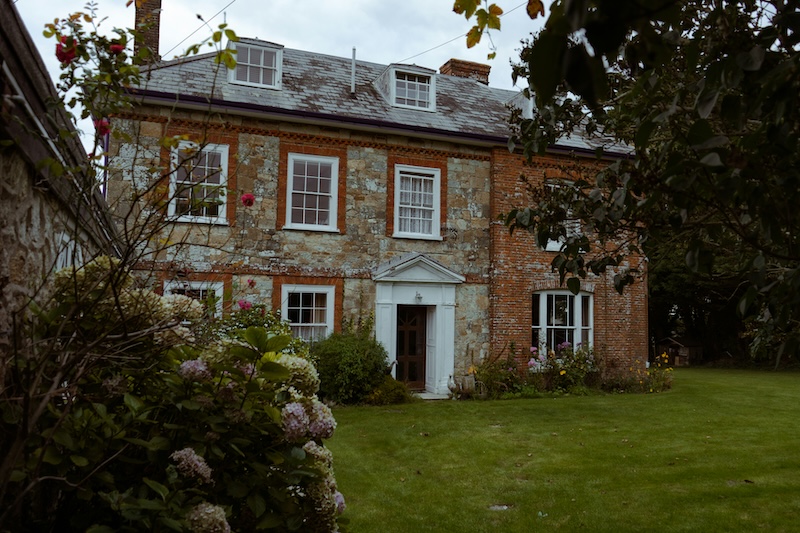What Does Buildings Insurance Cover?
Unlimited rebuilds, owner’s liability, and the extras you might want.

Unlimited rebuilds, owner’s liability, and the extras you might want.

Buildings insurance covers the cost of repairing or rebuilding the structure of your home if it’s damaged by events like fire, flood, or vandalism. This type of home insurance protects everything from your walls and roof to fitted kitchens and permanent fixtures, so you’re not left footing the bill for unexpected damage.
Here’s a closer look at what buildings insurance covers, which optional extras you might want, and how to make sure your property is fully protected.
Each built-in cover ensures you’re prepared for life’s unexpected events. Let’s take a closer look at each:
| Built-in cover | Why it matters |
|---|---|
| Unlimited rebuild cost | We pay to repair or rebuild the structure—walls, roof, fitted kitchen—after fire, escape of water, vandalism, or extreme weather. You never have to guess a “sum insured” |
| Temporary accommodation | We pay for alternative accommodations like hotel or short-lets (plus laundry/food uplift) if your home is uninhabitable |
| Owner’s liability | Protection if you’re legally responsible for injury or damage to others as the owner of your home |
Covered perils are the specific events or risks that your buildings insurance policy protects against. These include:
If your home suffers damage from any of these insured events, your policy will help cover the cost of repairing or rebuilding the affected areas.
While buildings insurance policies cover the cost of rebuilding your home, you may want to consider optional extras for extra peace of mind:
| Optional Add-On | Good For… |
|---|---|
| Home Emergency | 24/7 helpline to reach a tradesperson for boiler breakdowns, blocked drains, lost keys (up to £1,000 per incident) |
| Legal Protection | Solicitor fees for disputes like wrongful dismissal or neighbour nuisance |
| Accidental Damage to Your Home | DIY disasters—drilling through a pipe, smashing a window—up to £2,000 per claim |
| Household Member | Automatically extends the policy to a partner or family |
Tip: Add-ons can be toggled on or off at anytime on the Lemonade app, so you’re never locked in if your situation changes.
Even with a comprehensive buildings insurance policy, there are some common gaps in cover that can catch homeowners off guard. Here are a few areas to watch out for—and tips on how to make sure you’re fully protected:
To get the most out of your buildings insurance and avoid unexpected surprises, it’s important to keep your policy details up to date. Follow these simple steps to help ensure you’re always fully protected.
Buildings insurance is vital to protect your home’s structure and your peace of mind. By reviewing your policy, selecting optional extras like accidental damage or home emergency cover, and making sure we are aware of any home extensions, you can rest assured you’re fully protected against life’s unexpected events.
Why wait? Get a quote with Lemonade in minutes today.
Buildings insurance covers the structure of your home, such as the walls, roof, and permanent fixtures like fitted kitchens. Contents insurance protects your personal belongings, such as furniture, electronics, and clothing, against risks like theft, fire, and accidental damage. Most homeowners have both types of home insurance for comprehensive protection.
Most buildings insurance covers attached garages and other outbuildings like sheds or garden offices, as long as they are located at the same address as your home.
Buildings insurance typically excludes damage due to general wear and tear, poor maintenance, or gradual decline. Damage caused by pests, war, or acts of terrorism is often listed as an exclusion. Personal and occupier’s liability is also not covered.
Additionally, contents insurance is needed for your personal belongings, as buildings insurance only covers the structure of your home and permanent fixtures.
No. Unlimited rebuild cover means your insurer will pay out whatever it takes to completely restore the structure of your home.
While buildings insurance is not legally required for all homeowners, most mortgage lenders make it a requirement as part of the loan agreement.
Please note: Lemonade articles and other editorial content are meant for educational purposes only, and should not be relied upon instead of professional legal, insurance or financial advice. The content of these educational articles does not alter the terms, conditions, exclusions, or limitations of policies issued by Lemonade, which differ according to your state of residence. While we regularly review previously published content to ensure it is accurate and up-to-date, there may be instances in which legal conditions or policy details have changed since publication. Any hypothetical examples used in Lemonade editorial content are purely expositional. Hypothetical examples do not alter or bind Lemonade to any application of your insurance policy to the particular facts and circumstances of any actual claim.